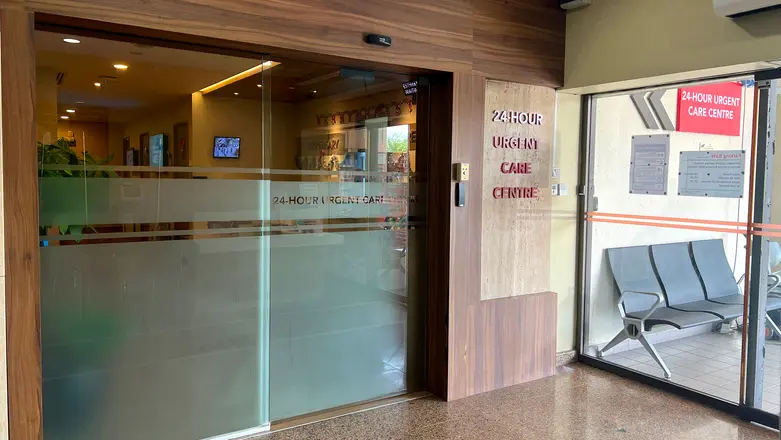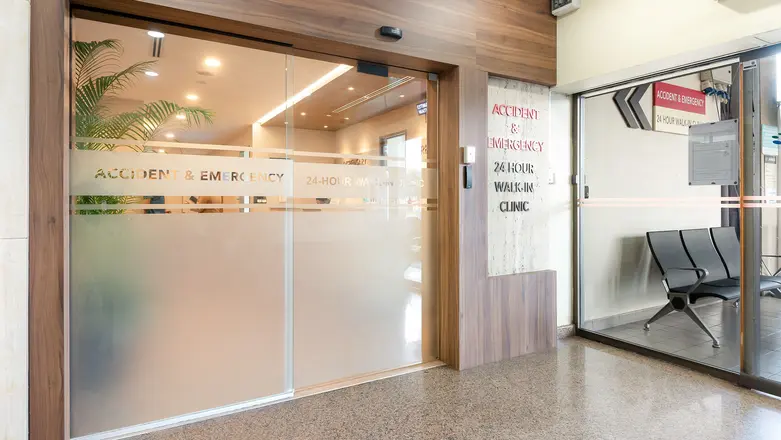-
-
Featured Care Areas


24-Hour Urgent Care Centre (UCC)
Overview
Visit the Gleneagles Hospital Urgent Care Centre (UCC) if you need immediate medical attention for urgent medical problems. Our specialists are ready to attend to you throughout the year. Find out more about our charges here.
Call our hotlines:
- 24-hour Gleneagles UCC helpline: +65 6470 5688
- Ambulance and medical transport hotline: 1800-PARKWAY (727 5929)
UCC waiting time
The average waiting time to see a doctor at our UCC is 30 minutes.
When you arrive, our medical team will assess your condition at the triage stage:
- Critical condition: Immediate medical attention
- Non-critical condition: 30-minute wait, depending on the severity of the condition and the number of patients in the queue
We seek your understanding that our priority is to provide care to the most critical cases first.
When to go to the UCC
A critical medical condition is a sudden injury or illness that can cause serious harm to your body or pose an immediate risk to your life.
Check what you should do for common conditions we treat at the UCC and how to make yourself more comfortable before you arrive.
Visit the UCC for medical conditions such as:
- Abdominal pain
- Bleeding
- Blurred vision
- Broken bones
- Chest pain
- Choking
- Head injuries and concussions
- High fever in babies
- Loss of consciousness
- Open wounds and burns
- Persistent vomiting and diarrhoea
- Seizures or fits
- Shortness of breath
Ambulance and medical transport services
Contact us if you need ambulance or other medical transportation to our hospitals.
For ambulance or special transport, please call:
- Ambulance and medical transport hotline: +65 6473 2222
- Toll-free hotline for local calls: 1800-PARKWAY (7275929)
For medical evacuation and repatriation outside Singapore, please call:
- Evacuation hotline: +65 9820 6833
UCC registration and admission
When you arrive at the UCC, you will be asked to:
- Fill in a registration form
- Make a health declaration
- Take your temperature
- Measure your blood pressure
During the consultation, our medical specialists may recommend you for admission to the hospital for further treatment.
Please inform the admission counter if you wish to be attended by your preferred specialist based in our hospital during your stay.
Find out more about hospital admissions.
UCC charges and insurance
If you intend to claim eligible UCC charges from your personal accident plans, comprehensive hospitalisation plans or travel insurance:
- Speak to your insurance provider ahead of time to check if direct billing is possible. You may also contact our admissions counter or call the following numbers to check.
Mount Elizabeth Hospital: +65 6731 2218 Mount Elizabeth Novena Hospital: +65 6933 0100
- Retain all records and receipts to support your claim.
- Ask your doctor to complete your claim form before your discharge if this is required by your insurance provider.
Find out more about using your insurance.
Our Locations
In this section



